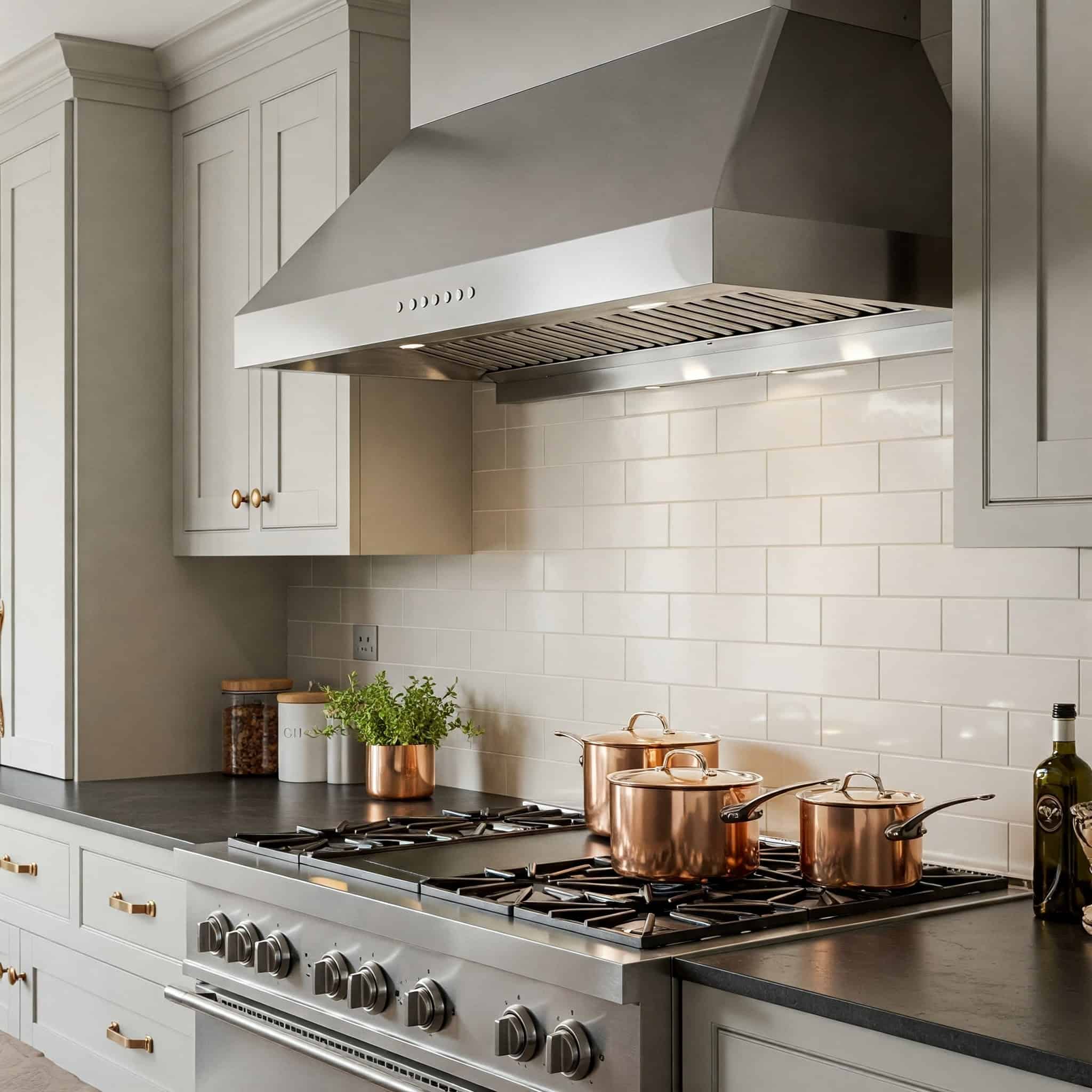
Question: Are Recirculating Rangehoods Any Good?
Answer: Recirculating rangehoods are good at removing odors and grease but don’t eliminate moisture or smoke as effectively as ducted models. They’re easier to install, making them suitable for kitchens without external venting options.
Recirculating Range Hoods: Pros and Cons
Recirculating range hoods offer a ventless option for kitchen ventilation. They filter air and return it to the kitchen, unlike ducted hoods that vent air outside. This article explores the benefits and drawbacks of recirculating range hoods, helping you decide if this type is right for your needs.
How Recirculating Range Hoods Work
Recirculating range hoods use filters to clean the air. A fan draws air through a grease filter, typically made of metal mesh. The air then passes through a charcoal filter, which absorbs odors and other airborne particles. The cleaned air returns to the kitchen. This system eliminates the need for ductwork, making installation simpler and less expensive.
Recirculating hoods provide a practical solution where exterior venting is difficult or impossible. They offer flexibility in kitchen design and layout. However, their effectiveness relies heavily on filter maintenance. Regular filter replacements are crucial for optimal performance.
Click here for more information on a kitchen cabinet refinishing service Toronto
Related Article: Do You Need an Electrician To Install a Ductless Range Hood?
Related Article: Are Ductless Range Hoods Any Good?
Drawbacks of Recirculating Range Hoods
While recirculating range hoods offer convenience, they have some limitations. They are less effective at removing moisture and strong odors compared to ducted hoods. Charcoal filters require regular replacement, adding to the operating cost. These filters can lose effectiveness over time, reducing the hood’s ability to clean the air.
Recirculating hoods may not completely eliminate all cooking odors, potentially leaving lingering smells in the kitchen. They do not remove heat or steam as effectively as ducted hoods, which can impact kitchen comfort during cooking. Some users perceive recirculating hoods as less powerful than ducted models.
Choosing the Right Range Hood: Recirculating vs. Ducted
Choosing between a recirculating and ducted range hood depends on individual needs and kitchen characteristics. Ducted hoods offer superior ventilation, removing smoke, steam, and odors effectively. They are ideal for serious cooks who generate significant cooking byproducts. Ducted hoods require exterior venting, which involves installation complexity and cost.
Recirculating hoods provide a convenient alternative where ducted installation is impossible. They are suitable for smaller kitchens or less frequent cooking. Consider factors such as cooking habits, budget, and kitchen layout when making your decision. If maximizing ventilation is paramount, a ducted hood is the better choice. If ease of installation and cost are primary concerns, a recirculating hood is a viable option.
Maintaining Recirculating Range Hoods
Proper maintenance is essential for optimal performance of recirculating range hoods. Regular cleaning of the grease filter is crucial. Replace the charcoal filter as recommended by the manufacturer, usually every three to six months. A clean grease filter prevents grease buildup, which can reduce airflow and increase fire risk.
Regularly inspect the hood for any signs of damage or malfunction. Clean the exterior surfaces of the hood regularly with a mild detergent. Proper maintenance ensures efficient operation and extends the lifespan of the recirculating range hood. Follow the manufacturer’s instructions for specific cleaning and maintenance recommendations.
Are Recirculating Range Hoods Any Good?
Are recirculating range hoods good? The answer depends on your individual needs and priorities. They are a practical solution for kitchens without exterior venting options, offering easy installation and cost savings. However, they are not as effective as ducted hoods in removing smoke, steam, and strong odors.
Conclusion – Are Recirculating Rangehoods Any Good?
Recirculating range hoods are a good option for kitchens where ducted installation is impractical. They provide basic ventilation and odor removal, making them suitable for light cooking. However, they may not meet the needs of serious cooks or those who frequently prepare strong-smelling dishes.
If you prioritize powerful ventilation and complete odor removal, a ducted hood is the better choice. If you need a simple, cost-effective solution for basic ventilation in a kitchen where ducting is impossible, a recirculating range hood is a viable option. Weigh the pros and cons carefully to determine the best fit for your specific cooking style and kitchen environment.

Blue Malue Get in touch with Blue here.
